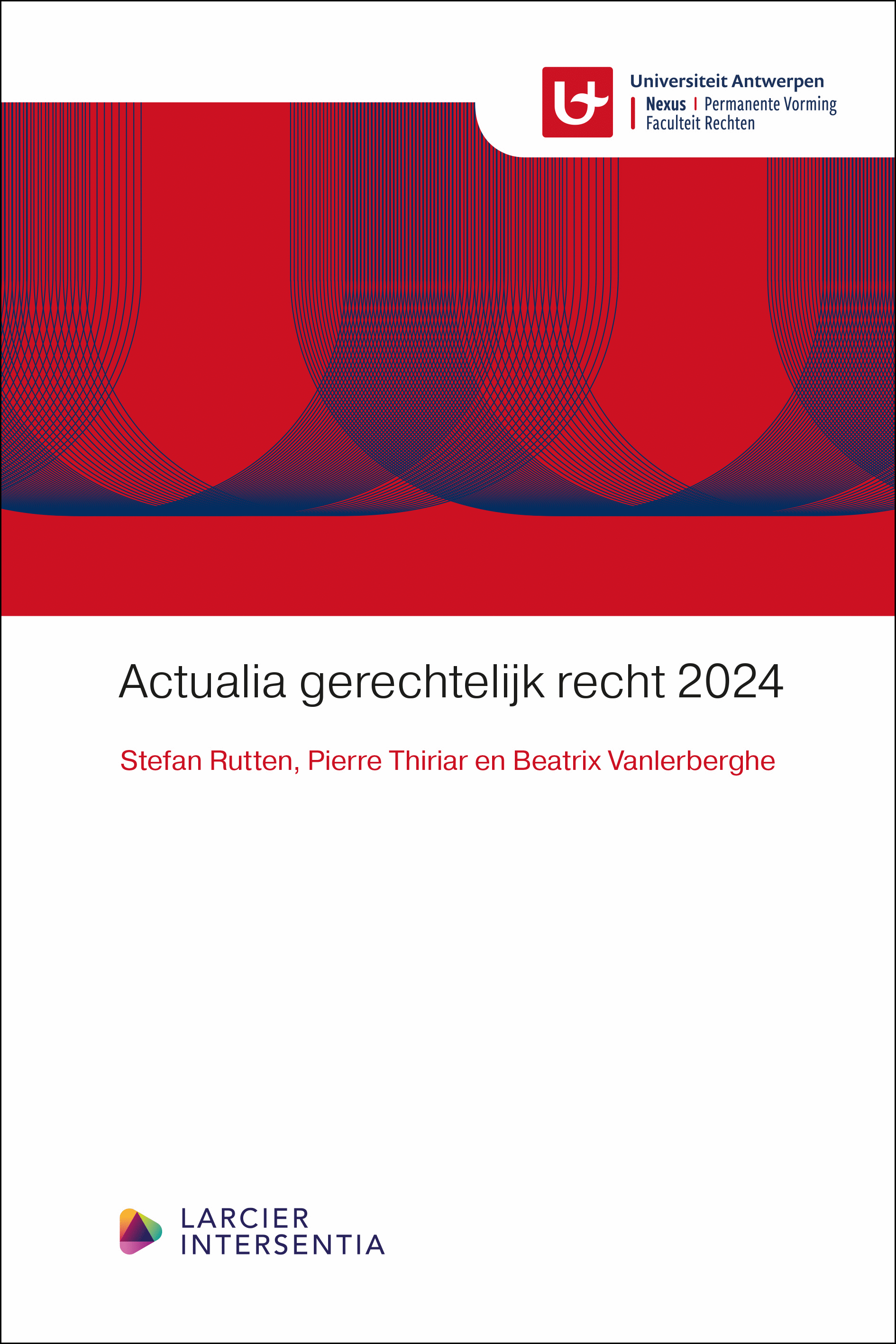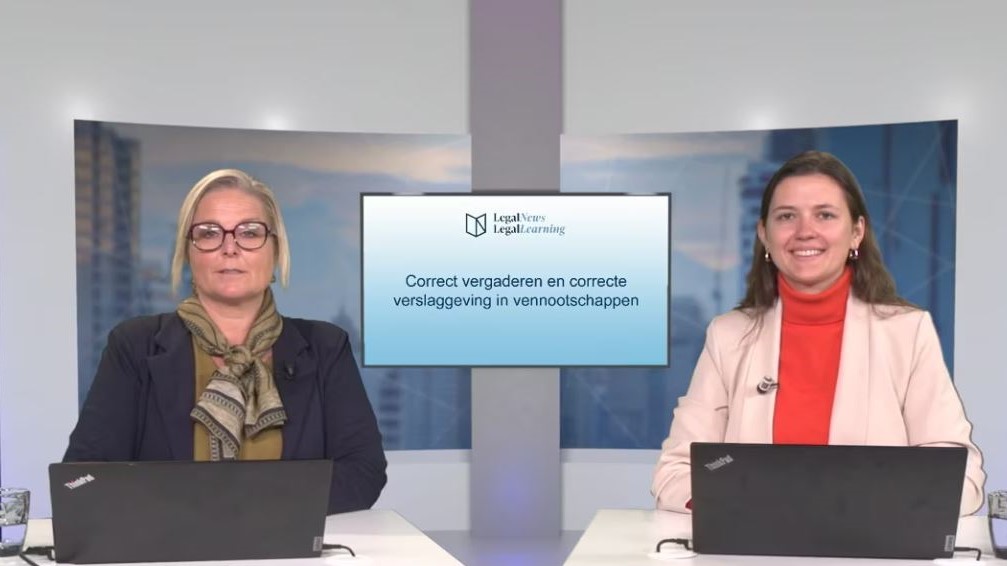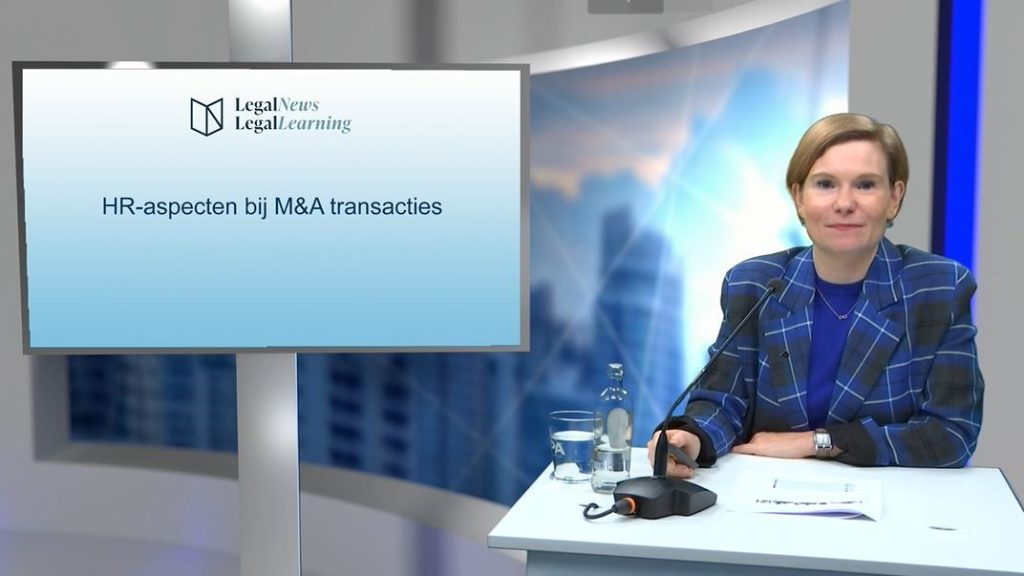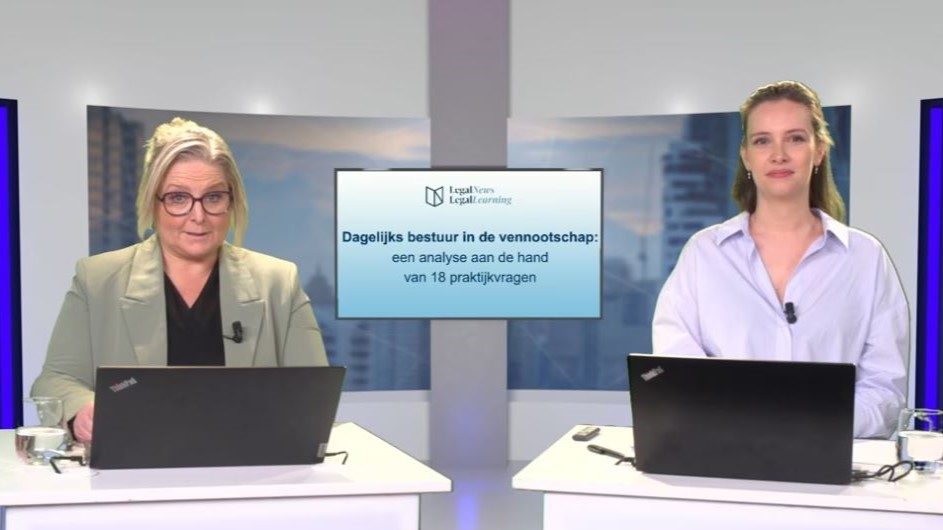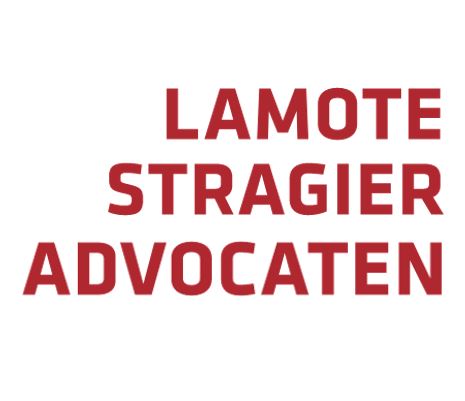Vennootschapsrecht:
recente wetgeving én rechtspraak anno 2024
Mr. Joris De Vos en mr. Michaël Heene (DLA Piper)
Webinar op donderdag 21 november 2024
Sociaal strafwetboek:
een grondige hervorming werd goedgekeurd
Mr. Kenny Decruyenaere en mr. Veerle Van Keirsbilck (Claeys & Engels)
Webinar op donderdag 5 december 2024
Recente wetgevende ontwikkelingen
met impact op de bouwsector
Prof. dr. Kristof Uytterhoeven (Caluwaerts Uytterhoeven)
Webinar op dinsdag 27 augustus 2024
De nieuwe wet op de private opsporing
Dhr. Bart De Bie (i-Force) en mr. Stijn De Meulenaer (Everest)
Webinar op donderdag 17 oktober 2024
Boek 7 ‘Bijzondere contracten’
en de impact voor de bouw- en vastgoedsector
Prof. dr. Kristof Uytterhoeven (Caluwaerts Uytterhoeven)
Webinar op donderdag 7 november 2024
Wathelet AG in Dědouch : Interpretation of the exlusive jurisdictional rule for corporate issues in the case of squeeze-out (GAVC Law)
Auteur: Geert Van Calster (GAVC Law)
Publicatiedatum: 24/11/2017
In C-560/16 Dědouch, Wathelet AG Opined last week, on the scope of the exclusive jurisdictional rule of (now) Article 24(2) of Regulation 1215/2012. The issue arose in proceedings between Michael Dědouch et al, a group of minority shareholders on the one hand, and Jihočeská plynárenská a.s. (established in the Czech Republic) and E.ON Czech Holding AG (‘E.ON’) [established in Germany] on the other, concerning the reasonableness of the sum which, in a procedure for removing minority shareholders (‘squeeze-out’), E.ON was required to pay Mr Dědouch et al following the compulsory transfer of their shares in Jihočeská plynárenská.
Mr Dědouch et al are suing both companies and are asking the Regional Court, České Budějovice, Czech Republic to review the reasonableness of the sum. In those proceedings E.ON raised an objection that the Czech courts lacked jurisdiction. E.ON argue that, in view of the location of its seat /domicile, only the German courts had international jurisdiction per (now) Article 4.
The regional court initially accepted jurisdiction on the basis of (now) Article 8(1): the anchor defendant mechanism (one of the two defendant companies being a Czech company). Eventually the High Court, Prague found that the Czech courts had jurisdiction under (old) Article 5(1)(a) of the Brussels I Regulation: the special jurisdictional rules for contracts.
Wathelet AG suggests the case raises the complex issue of litigation in intra-company disputes. At 21 he writes that the facts highlight a structural problem in the Regulation, namely ‘the absence of a basis of jurisdiction dedicated to the resolution of internal disputes within companies, such as disputes between shareholders or between shareholders and directors or between the company and its directors.’ That is not quite correct: it is not because the Regulation has no tailor-made regime for this type of dispute that is has no jurisdictional basis for it. That a subject-matter is not verbatim included in the Regulation does not mean it is not regulated by it.
The AG then (at 23) considers that the issue under consideration is complicated by the difficulty of applying (now) Articles 7(1) and (2), ‘since the removal of the minority shareholders and the consideration decided by a resolution of the general meeting are neither a contract nor a tort, delict or quasi-delict.’ I am not so sure. Is there no ‘obligation freely assumed’ between minority and other shareholders of the same company? Are they not bound by some kind of ‘contract’ (in the broad, Jakob Handte sense) when becoming shareholders of one and the same company? That (at 24) ‘The principle of a procedure for squeezing out the minority shareholders is that the principal shareholder can start it without their consent‘ I do not find convincing in this respect. Plenty of contractual arrangements do not limit contracting parties’ freedom to act: except, their actions may have contractual consequences. The AG in my view focuses too much on the squeeze out being one-sided. An alternative view may see a wrongful deployment of squeeze-out a breach of an earlier contractual, indeed fiduciary duty between /among shareholders.
Unlike the AG (at 26), neither do I see great obstacle in the difficulty in determination of a specific place of performance of such contractual duties between shareholders in the company law context. They may not fit within the default categories of Article 7(1), however I can see many a national judge not finding it impossible to determine a place of performance.
On the basis of these perceived difficulties the AG dismisses application of Articles 7(1) and (2) and then considers, and rejects, a strict application of Article 24(2). In other words in the AG’s view Article 24(2) is engaged here.
This is a tricky call. Justified reference is made by the AG to C‑372/07 Hassett, in which (then) Article 22(2) was held no to apply to a decision made by the Board of the Health Organisation not to indemnify two of their members in cases of medical negligence: this was found by the CJEU to be an action relating to the way in which a company organ exercises its functions – not covered by Article 24(2). In Dědouch, the action relates to the amount which the General Meeting of the company fixed as the compensation E.ON was required to pay the minority shareholders following the transfer of the shares. Notwithstanding Czech company law being the lex causae in assisting the GM in that decision, I am not convinced this engages Article 24(2) (hence reserving jurisdiction to the Czech courts).
In summary, I believe the Court should reject application of Article 24(2), and instruct the national courts to get on with the determination of jurisdiction per Article 7, or indeed 8.
» Bekijk alle artikels: Geschillen & Procedure, Vennootschappen & Verenigingen







